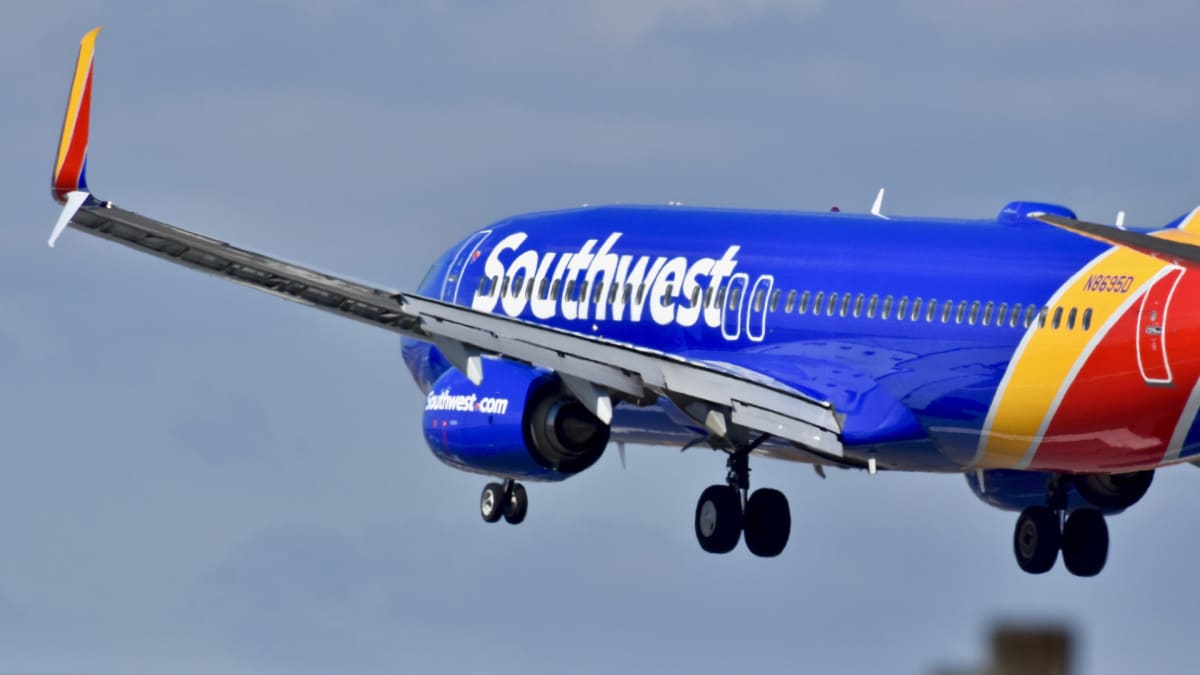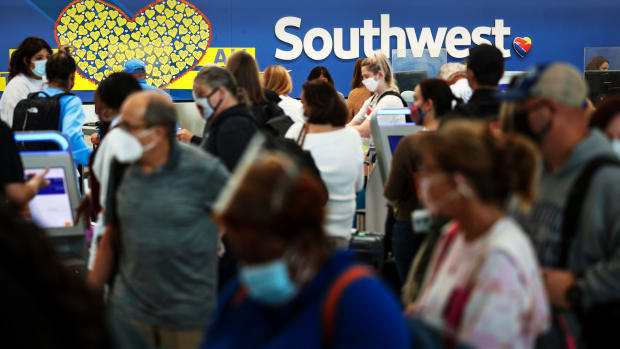
Southwest Airlines (LUV) handles boarding very differently than any other airline does.
The process is built around a mix of democracy and rewarding loyal customers.
The airline does not assign seats. That's different from major rivals like Delta (DAL), JetBlue, (JBLU) Spirit, (SAVE) and United (UAL) which tie seat assignments to the price of a ticket. Higher-priced-fare buyers not only get to pick their own seats, they get to board planes sooner.
On most airlines, basic economy fares don't come with seat assignments. You can either pay more for a particular seat or take your chances at the gate. If you don't pay extra, you most likely won't get to sit with anyone you may be traveling with, you'll probably end up in a middle seat, and you'll almost certainly end up boarding last and won't get access to overhead bins).
Southwest does not charge for seat assignments. Instead, it uses a pick-your-own-seat system with assigned boarding slots. The airline's best customers get a major edge under the current system -- something that greatly encourages loyalty -- but the airline is considering a change that may undermine that model.

Kevin Dietsch/Getty Images
Here's How Southwest Boarding Works
Southwest allows all ticketed passengers to check in exactly 24 hours before their flights. When you do that, you are given a boarding letter (A, B, or C) and a number (1-60). That determines the order in which you will get on the plane.
The A group boards first in a 1 through 60 order, making those passengers the first ones on the plane aside from people requiring preboarding assistance, usually due to a disability.
There are a couple of non-loyalty ways you can get a better boarding letter and number:
- Pay for so-called EarlyBird check-in: For a fee starting at $30 one way, the airline will check you into your flight before the 24-hour window. This does not guarantee you an A group spot, but it usually lands you toward the end of the first group or at the beginning of the B group passengers.
- Buy Business Select/upgraded seating: Starting at $30 per person, per flight segment, paying for this can get expensive, but it guarantees you a spot between A1 and A15.
Southwest also rewards its A-List and A-List Preferred customers by checking them in first (essentially free EarlyBird) and enabling them to board between the A and B groups if they don't land an A group number.
That's valuable, and the airline's most loyal customers are very protective of how their status enables them to get on the plane among at least the first third or so of passengers.
It's not easy to earn A-List status. It takes 25 one-way flights in a year -- slightly more than one round-trip a month -- so the people who have it are both very loyal and very wary of changes to the program.
Southwest May Make a Major Change
Southwest currently offers family boarding between the "A" and the "B" group.
"Up to two adults traveling with a child six years old or younger may board during family boarding," the airline says on its website.
That's an elegant solution that lets families with young children get seats together, even if those seats are in the back half of the plane.
Now, the airline has conducted limited tests on moving family boarding to before the A group boards but with the caveat that those families won't be able to sit in the first 15 rows. That solution may make families happy, but it would do that at the expense of weakening the boarding perk offered to its most loyal A-List customers.
Every person who gets on the plane before you limits your choice of seating and access to overhead bins. Yes, being close to the front of the plane is something many passengers want, but others simply want to have their pick of seats.
The preboard customer rules already enable a number of people to board before the A group on many flights. If Southwest keeps making more exceptions to its boarding rules, it lessens the value of being loyal.
That's something the airline likely wants to be very careful about as low-cost competition continues to grow and JetBlue (JBLU) moves forward with its merger with Spirit Airlines (SAVE).
It's important to ensure that families get to sit together -- especially those with young children -- but it's more important to keep your best, most loyal customers happy.







